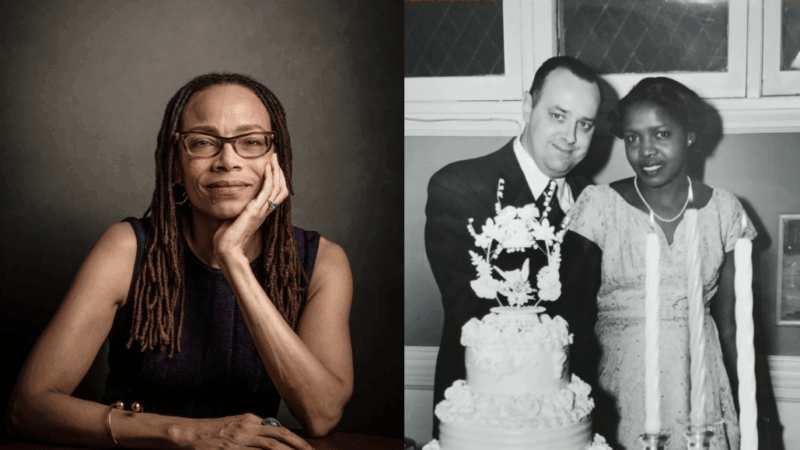How Juneteenth and Black America helped shape U.S. cuisine
Good morning. You’re reading a special Juneteenth edition of the Up First newsletter. Subscribe here to get the newsletter delivered to your inbox, and listen to the Up First podcast for all the news you need to start your day.
Juneteenth and American cuisine
I have been digging online to gain a deeper understanding of the connection between food and Juneteenth. After reading countless articles about the meaning of the traditional foods and meals, nothing stood out to me.
It wasn’t that I didn’t feel connected to the traditional foods associated with Juneteenth. But every time I looked them up, I’d say to myself, “This is just what I eat all the time,” and “there has to be a deeper connection.”

It wasn’t that I didn’t like any of the food. Red velvet cake is one of my favorite desserts. I’ll crave a good barbecue or fish fry over pizza. And sweet potatoes are one of my favorite ingredients.
I think that it was my inner food snob talking. To say that “I love food” or to call myself a foodie would be an understatement. Before my days at NPR, I lived my first adult life as a chef in my hometown of Atlanta.
For years, it felt weird to say that my favorite cuisine was Southern or soul food. I didn’t get comfortable giving that answer until I was close to the end of my culinary career.
I was fighting my “impostor syndrome” while trying to find my confidence as a chef. I felt that I had to show the chefs I worked with that I belonged. I was worried about sharing that I was not as interested in cooking or eating food from more classic cuisines, like French or Italian. I’d question if I had earned the right to be called a chef because I wanted to cook food that a lot of people I knew could make.
But after I ended my culinary career and started my new life in journalism, I became comfortable with saying, “Yes, I’ve been a chef” and following that up with, “My favorite cuisine is soul/Southern food.” I now feel a sense of pride because, as a Black man, this cuisine is a part of who I am.
I think that’s why, at first, I had a hard time finding the deeper meaning behind the food associated with Juneteenth. The connection has been in front of me this whole time. As I dug deeper into the traditions that surround this holiday, I saw how they’ve been a part of me — and a part of Black and American culture.
Foods like sweet potatoes, black-eyed peas and collard greens, which are synonymous with holiday meals, were introduced to the United States by enslaved West Africans. These foods are also some of my favorites to cook and eat.
Cooking methods like barbecuing meats and deep-frying fish also date back to West Africa before the transatlantic slave trade. After Africans were brought to the U.S. through the slave trade, they passed their methods on to the next generation. This kept their traditions alive until their ancestors were emancipated in the 1860s.
Union soldiers came to Galveston, Texas, in 1865 and announced that slavery had been put to an end by the Emancipation Proclamation, which was signed by President Abraham Lincoln two years earlier. After that, people celebrated Juneteenth with barbecues throughout the late 19th century.
In the present, barbecues and fish fries are woven into the fabric of American culture. They’re also a part of Black culture.
When I reflect on Juneteenth, one of the many things I think about is how the food and cooking methods enslaved Africans brought with them played a huge part in the culture and cuisine that define America today. Without their contributions, soul food would not be what it is today, and many foods we’ve come to know and love would be missing from American cuisine.
Looking into these traditions has given me a greater understanding and appreciation for the food that has shaped me as a person and an American. I hope that sharing this perspective can help you find appreciation for the contributions that Black America and our traditions have made to America’s culture.
Juneteenth stories you may have missed

Juneteenth commemorates the fall of slavery in Galveston, Texas, in 1865 — two years after the Emancipation Proclamation ordered the liberation of Black people held in the Confederacy. The only known remaining original copy of the order ending slavery in Texas will be on display again starting today at the Hall of State in Dallas, part of an interactive exhibit put on by the Dallas Historical Society.
Texas lawmakers have allocated $10 million for the development of the National Juneteenth Museum in Fort Worth’s Historic Southside. The museum started celebrations early with its “Declarations of Freedom” exhibit, featuring photos from Juneteenth celebrations in the ’70s and ’80s along with contemporary works from North Texas artists.
Omaha, Neb., has a long history of celebrating Juneteenth, and this year the energy will be heightened even more. Today marks the city’s first time observing the holiday with its first Black mayor, Democrat John Ewing Jr., who ousted the 12-year Republican incumbent last month.
Across the U.S., some organizers of Juneteenth celebrations are facing challenges in securing funding and finding suitable event spaces. Kenneth Adams, an organizer in Bend, Ore., shared that he and other planners are worried about ensuring security at their event in a public park. Listen to Adams and others as they discuss the difficulties of hosting Juneteenth events, along with Morning Edition‘s annual reading of the Emancipation Proclamation.
Isabel Wilkerson reflects on this year’s Juneteenth celebrations and the complexities of the Black experience in America. Wilkerson is the author of Caste, a book that argues that it was not racism that Black people were fleeing when they left the Jim Crow South, but rather a caste system.
This newsletter was edited by Suzanne Nuyen.
Top 5 takeaways from the House immigration oversight hearing
The hearing underscored how deeply divided Republicans and Democrats remain on top-level changes to immigration enforcement in the wake of the shootings of two U.S. citizens.
Snowboarder Chloe Kim is chasing an Olympic gold three-peat with a torn labrum
At 25, Chloe Kim could become the first halfpipe snowboarder to win three consecutive Olympic golds.
Pakistan-Afghanistan border closures paralyze trade along a key route
Trucks have been stuck at the closed border since October. Both countries are facing economic losses with no end in sight. The Taliban also banned all Pakistani pharmaceutical imports to Afghanistan.
Malinowski concedes to Mejia in Democratic House special primary in New Jersey
With the race still too close to call, former congressman Tom Malinowski conceded to challenger Analilia Mejia in a Democratic primary to replace the seat vacated by New Jersey Gov. Mikie Sherrill.
A daughter reexamines her own family story in ‘The Mixed Marriage Project’
Dorothy Roberts' parents, a white anthropologist and a Black woman from Jamaica, spent years interviewing interracial couples in Chicago. Her memoir draws from their records.
FBI release photos and video of potential suspect in Guthrie disappearance
An armed, masked subject was caught on Nancy Guthrie's front doorbell camera one the morning she disappeared.





